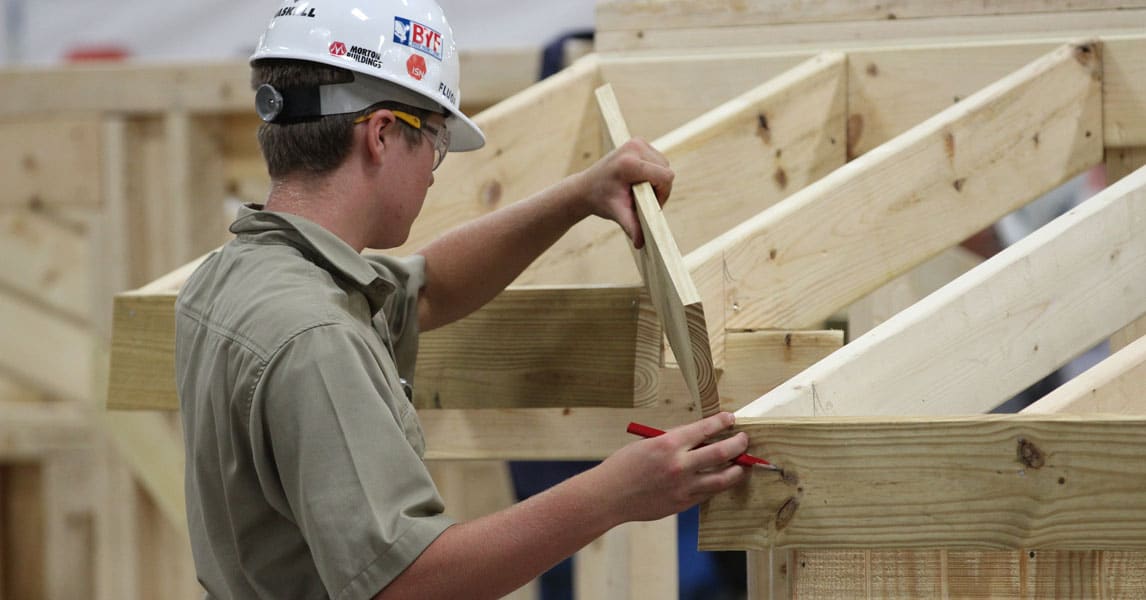
Chicago’s skyline—a mix of historic brownstones and cutting-edge skyscrapers—is a testament to the city’s thriving construction industry. For those drawn to hands-on work, carpentry offers not just a job but a career path with stability, competitive wages, and opportunities for growth. Whether crafting custom cabinetry, restoring century-old buildings, or constructing sustainable housing, carpenters in Chicago play a vital role in shaping the city’s infrastructure. This guide breaks down the licensing requirements, apprenticeship pathways, financial considerations, and career outlook for aspiring carpenters in the Windy City.
Unlike some trades, Illinois does not mandate a statewide license for individual carpenters. However, Chicago enforces specific regulations for those working independently or overseeing projects. According to the Chicago Department of Buildings (DOB), carpenters operating under a licensed general contractor (GC) do not need individual licenses. However, independent contractors or businesses performing structural work, demolition, or projects requiring building permits must obtain a GC license12.
| Class | Project Scope | Application Fee | Annual Renewal |
|---|---|---|---|
| A | Unlimited | $2,000 | $1,200 |
| B | Up to $10M | $1,500 | $1,200 |
| C | Up to $5M | $1,000 | $1,200 |
| D | Up to $2M | $750 | $1,200 |
| E | Up to $500K | $500 | $1,200 |
| F | Up to $250K | $300 | $1,200 |
| Source: Chicago Department of Buildings34 |
To qualify for a GC license, applicants must provide proof of financial solvency, carry at least $500,000 in liability insurance, and pass background checks56. While certifications aren’t legally required, employers often prioritize candidates with:
Union-affiliated carpenters, who secure 92% of Chicago’s commercial contracts, typically complete apprenticeships registered with the U.S. Department of Labor, ensuring compliance with safety and skill standards910.
The most structured route into carpentry is through a union-sponsored apprenticeship. The Mid-America Carpenters Regional Council oversees programs that blend classroom instruction with paid on-the-job training:
For those aiming to run their own business:
| Stage | Duration | Key Milestones |
|---|---|---|
| Pre-Apprenticeship | 6–12 months | Complete vocational certificates (e.g., City Colleges of Chicago’s 27-credit program)19 |
| Apprenticeship | 4 years | 576 classroom hours + 8,000 on-site hours |
| Journeyman | Immediate | Full union wages ($60,789+ annually) |
| Contractor Licensing | 4–8 weeks | Application processing and approvals |
Source: Carpenters Training Institute20
Pre-apprenticeship programs, like those offered by Revolution Workshop, provide foundational skills for underrepresented groups, while union apprenticeships guarantee placement on major projects like the O’Hare International Airport expansion2122.
Union members benefit from tool reimbursement programs and access to training centers with state-of-the-art equipment2930.
| Role | Hourly Wage | Annual Salary |
|---|---|---|
| Apprentice (Year 1) | $16.50 | $33,436 |
| Journeyman | $29.23 | $60,789 |
| Foreman/Superintendent | $34.85–$63.00 | $72,485–$131,018 |
| Source: Carpenters Training Institute, Salary.com3132 |
The Bureau of Labor Statistics projects a 10% growth in carpentry jobs nationally through 2034, driven by infrastructure investments and demand for eco-friendly construction33. In Chicago, union carpenters dominate commercial projects, with major developments like the $6.8 billion Obama Presidential Center ensuring steady work3435.
Chicago’s carpentry trade offers a resilient career path with multiple entry points, from union apprenticeships to vocational training. While independent contracting requires upfront investment, union members enjoy wage security, healthcare benefits, and continuous upskilling opportunities. With the city’s construction sector booming—fueled by infrastructure projects and sustainable development initiatives—now is the time to lay the foundation for a rewarding career in carpentry. Aspiring tradespeople should prioritize OSHA certifications, union membership, and specialization in high-demand niches to maximize their earning potential.
⁂
Chicago Department of Buildings General Contractor Licensing ↩
Chicago Municipal Code – Construction Regulations ↩
Chicago Department of Buildings General Contractor Licensing ↩
Illinois Contractor Licensing Requirements ↩
Chicago Department of Buildings General Contractor Licensing ↩
Chicago Municipal Code – Construction Regulations ↩
City Colleges of Chicago Construction Carpentry Certificate ↩
Midwest Carpenters Training Center Admissions ↩
Mid-America Carpenters Skill Advancement Program ↩
Mid-America Carpenters Union Career Pathways ↩
Mid-America Carpenters Regional Council Apprentice Program ↩
Midwest Carpenters Training Center Admissions ↩
Carpenters Training Institute Apprenticeship Data ↩
Mid-America Carpenters Union Career Pathways ↩
Carpenters Training Institute Apprenticeship Data ↩
Chicago Department of Buildings General Contractor Licensing ↩
Illinois Contractor Licensing Requirements ↩
Illinois Contractor Licensing Requirements ↩
City Colleges of Chicago Construction Carpentry Certificate ↩
Carpenters Training Institute Apprenticeship Data ↩
Mid-America Carpenters Skill Advancement Program ↩
Revolution Workshop Pre-Apprenticeship Program ↩
Carpenters Training Institute Program Costs ↩
City Colleges of Chicago Construction Carpentry Certificate ↩
CCC Catalog – Carpentry Program ↩
Illinois Contractor Licensing Requirements ↩
Chicago Department of Buildings General Contractor Licensing ↩
Mid-America Carpenters Union Career Pathways ↩
Carpenters Training Institute Program Costs ↩
Carpenters Training Institute Apprenticeship Data ↩
Salary.com Carpenter II Benchmarks ↩
Carpenters Training Institute Apprenticeship Data ↩
U.S. Bureau of Labor Statistics – Carpentry Outlook ↩
Mid-America Carpenters Skill Advancement Program ↩
Mid-America Carpenters Union Career Pathways ↩
Mid-America Carpenters Skill Advancement Program ↩
Carpenters Training Institute Apprenticeship Data ↩
Illinois Contractor Licensing Requirements ↩

